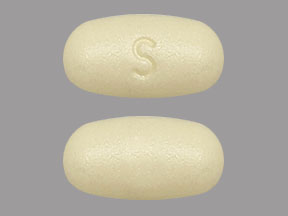
Colestipol Coupons & Savings Card – Discount Prices from $47.02
Generic for: Colestid, Colestid flavored
My prescription
Edit
1GM, Colestipol (180 Tablets)
Select pharmacy

CVS
$106.00
COUPON PRICE
Walgreens
$47.02
COUPON PRICE
Albertsons
$135.31
COUPON PRICE
Walmart
$161.07
COUPON PRICEColestipol savings card
Show this card to your pharmacist
Walgreens
$47.02
BIN
ID
PCN
GRP
015995
LHKPY404033
GDC
DR33
Powered by
More prescriptions for high cholesterol
More prescriptions for high cholesterol
Price history for Colestid (brand) & Colestipol (generic)
180 Tablets, 1GM
Average retail price for Colestid
Average retail price for Colestipol
Average SaveHealth price for Colestipol
Our price history data is based on aggregated prescription data collected from participating pharmacies in America. Our prescription data updates daily to reflect the latest price changes. If you notice a missing data point, it means there wasn't sufficient data available to generate a monetary value for that date.
We analyzed Colestipol prices for (1GM, 180 Tablets) over the last 12 months. The average retail price was $99.66, while the average price using the SaveHealth discount card was $77.95. That's a savings of approximately 21.78% when using our Colestipol coupon.
Compared to the generic version, Colestid had an average price of $372.97 over the same time period. With the SaveHealth savings card, Colestipol is 79.10% cheaper on average than Colestid.
*Retail prices are based on pharmacy claims data, and may not be accurate when we don't have enough claims.
Colestipol dosage forms
Dosage Quantity Price from Per unit 1GM 180 Tablets $106.00 $0.59 1GM 1 Tablet $3.32 $3.32 1GM 30 Tablets $27.16 $0.91 1GM 120 Tablets $79.44 $0.66
| Dosage | Quantity | Price from | Per unit |
|---|---|---|---|
| 1GM | 180 Tablets | $106.00 | $0.59 |
| 1GM | 1 Tablet | $3.32 | $3.32 |
| 1GM | 30 Tablets | $27.16 | $0.91 |
| 1GM | 120 Tablets | $79.44 | $0.66 |
